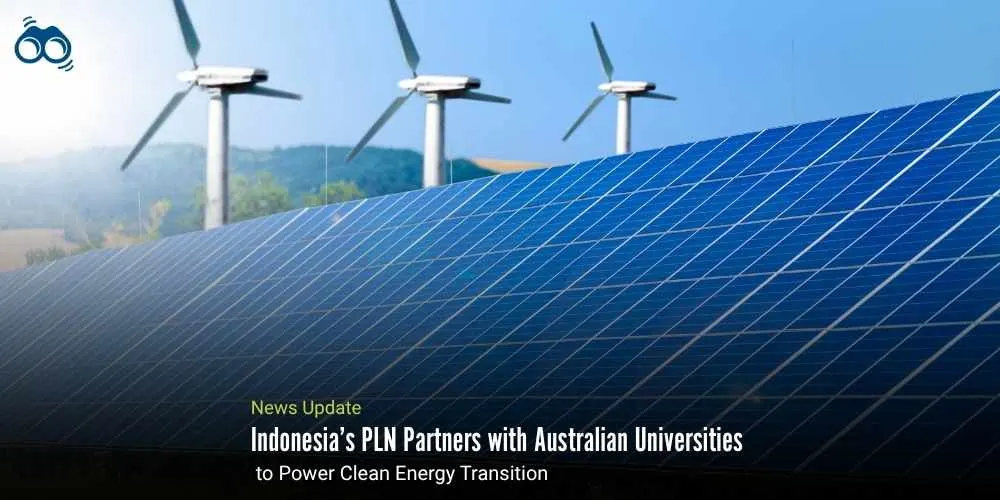Indonesia Targets Net-Zero by 2060: PLN Invests in Skills and International Collaboration
PLN Embarks on Organisational Transformation to Drive Clean Energy Future
As global climate commitments continue to intensify, Indonesia has accelerated its energy transition, with its state-owned electricity provider, PT Perusahaan Listrik Negara (PLN), emerging as a key driver in the country’s ambition to achieve net-zero emissions by 2060. In line with both national and international sustainability goals, PLN has embarked on a comprehensive transformation to become a more dynamic, entrepreneurial, and innovative organisation.
This strategic shift reflects PLN’s dual ambition: to decarbonise its operations and to lead the development of cleaner energy infrastructure across the archipelago. By embracing innovation and adopting a forward-looking business model, the company aims to reshape Indonesia’s energy landscape for a low-carbon future. PLN’s Director of Human Capital Management, Pak Yusuf Didi Setiarto, is understood to have remarked that transforming the 80-year-old, traditionally conservative organisation required more than structural changes. It demanded a fundamental shift in culture, mindset, and skills—what he described as creating a “new DNA” within the company. To support this transformation, PLN has partnered with four leading Australian universities in a capacity-building programme, sending employees to Australia to acquire the expertise necessary for Indonesia’s clean energy transition.
In 2023, PLN reportedly served over 89 million customers, although 85% of electricity still came from coal and gas. In response, the Indonesian government approved the 2025–2034 Power Supply Plan (RUPTL) in May 2025, aiming to add 42.6 GW of renewable energy by 2034 and increase renewables’ share to 35%. Pak Setiarto is said to have outlined three core transformation projects essential to meeting this target: transitioning to green energy, developing business capabilities, and enhancing digital expertise to manage a renewable-powered grid across Indonesia’s islands. He reportedly emphasised the urgency of upskilling the workforce, noting that staff needed to acquire new technical competencies, adopt innovative mindsets, and embrace modern learning and technological approaches.
To facilitate this, PLN launched a comprehensive programme that included intensive English training and collaboration with top-tier universities. While the company had its funding mechanisms, it also encouraged employees to apply for national and international scholarships, such as Indonesia’s LPDP and the Australia Awards Scholarship (AAS). Given LPDP’s requirement for enrolment in globally recognised institutions, PLN focused on high-ranking universities offering programmes in science, engineering, digital technology, asset management, renewable energy financing, business development, law, and public policy. Australia was reportedly chosen as a preferred destination due to its strong educational ties with Indonesia, its reputation for practical, real-world learning, and its own net-zero 2050 target, which meant Australian organisations were already implementing transition strategies relevant to PLN’s goals.
Austrade played a pivotal role in facilitating connections between PLN and Australian universities. During the Australia–Southeast Asia Business Exchange future skills mission in September 2024, PLN engaged with multiple institutions in a single event, enabling it to communicate its training needs and gain insights into Australian curricula and teaching methods. Pak Setiarto is believed to have stressed the importance of exposure and experience in driving cultural change within PLN. The company had already partnered with institutions across Asia, Europe, and Scandinavia, and had signed Memoranda of Understanding with four major Australian universities, Monash University, UNSW, University of Queensland, and University of Melbourne, to support joint research and training initiatives.
To date, over 500 PLN employees have reportedly participated in the programme, with more than 300 studying in Australia. Participants also visited scientific and energy facilities to gain hands-on experience with advanced technologies and problem-solving approaches. Pak Setiarto is understood to have remarked that witnessing technologies in action helped staff envision how they could be applied in Indonesia, noting that “sometimes seeing is believing.” While acknowledging the scale of the energy transition challenge, he expressed confidence that PLN was well-prepared, given the right planning and support.
The initiative is said to have a broader impact beyond PLN itself. According to Pak Dedi Budi Utomo, Executive Vice President of Human Talent Development, the programme serves as a model for other Indonesian organisations seeking to fund and manage similar development efforts. PLN has also established cross-organisational communities of practice to strengthen renewable energy expertise nationwide. Pak Utomo reportedly emphasised that the ultimate goal is to equip PLN employees with the confidence to participate in international forums and demonstrate leadership in addressing global energy challenges.PLN’s transformation reflects Indonesia’s growing commitment to climate action and the strategic importance of investing in human capital for a sustainable future.
Editor’s Note:
Indonesia is taking a bold step toward a cleaner future, and at the centre of this effort is its national electricity provider, PT Perusahaan Listrik Negara (PLN). The company is not just shifting from fossil fuels to renewables; it is also transforming how it operates, thinks, and prepares its people for the challenges ahead. Moving an 80-year-old, state-run utility into the future isn’t easy, but PLN is showing that change is possible with vision and commitment. What stands out in this story is the way energy reform is being matched with human development. By partnering with top Australian universities, PLN is investing in more than infrastructure; it’s investing in knowledge, leadership, and a new mindset. The company is sending its employees abroad to learn, adapt, and bring back the skills Indonesia needs to meet its climate goals.
Skoobuzz believes a successful energy transition needs more than technology. Training staff globally to solve complex problems and lead with purpose is key. Climate action demands widespread collaboration across governments, institutions, countries, and communities.














0 Comments (Please Login To Continue)